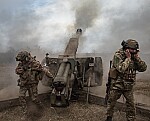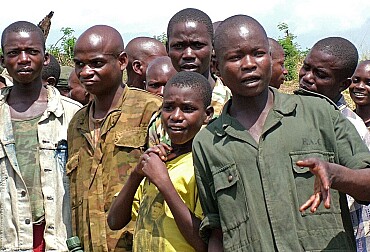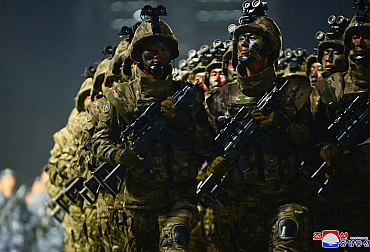Armenia's strategic shift: Joint military drills with the US amid tensions with Russia
Armenia has embarked on a significant geopolitical shift as it commenced joint military drills with the United States on Monday. These drills, dubbed "Eagle Partner," mark a strategic effort by Armenian leadership to strengthen ties with Western allies amid deteriorating relations with Russia.
Objectives and participants
The "Eagle Partner" exercises are designed to enhance the interoperability of units involved in international peacekeeping missions, as stated by Armenia’s Defense Minister Suren Papikyan. This year's drills involve Armenian peacekeeping forces alongside servicemen from the U.S. Army Europe and Africa, and the Kansas National Guard. While the exact number of troops participating has not been disclosed, the exercises are slated to run through July 24.
Historical context
Since the dissolution of the Soviet Union in 1991, Russia has been Armenia’s principal economic partner and security ally. Armenia, a landlocked nation and former Soviet republic, hosts a Russian military base and is a member of the Collective Security Treaty Organization (CSTO), a security alliance led by Moscow.
However, recent events have strained this long-standing relationship. The most notable strain came after Azerbaijan launched a swift military campaign last year, reclaiming the Karabakh region and ending nearly three decades of ethnic Armenian separatist control. Armenian authorities criticized Russian peacekeepers for not intervening during Azerbaijan's offensive. Moscow defended its forces, stating they lacked the mandate to intervene in the conflict.
The Russian balancing act
Russia faces a complex diplomatic challenge in the South Caucasus, striving to maintain favorable relations with both Armenia and Azerbaijan. This balancing act is further complicated by Azerbaijan's close ties with Turkey, a critical economic partner for Russia, especially under the weight of Western sanctions.
Despite these complexities, the Kremlin's irritation with Armenian Prime Minister Nikol Pashinyan has grown. Pashinyan’s administration has taken notable steps to distance Armenia from Moscow-dominated alliances and deepen its engagement with Western institutions. A significant point of contention was Armenia's decision to join the International Criminal Court (ICC), which last year issued an arrest warrant for Russian President Vladimir Putin over alleged war crimes related to the conflict in Ukraine.
Armenia’s pivot westward
Amid the growing rift with Russia, Armenia has increasingly looked Westward. The nation has suspended its participation in the CSTO, canceled joint military drills with the alliance, and refrained from attending its summits. These actions have not gone unnoticed in Moscow, where officials have labeled Armenia's moves as "unfriendly."
The "Eagle Partner" drills, first conducted in September 2023, further underscore this Westward pivot. The exercises were met with disapproval in Moscow, highlighting the deepening schism between Armenia and Russia.
Implications for regional security
Armenia's strategic realignment has significant implications for regional security dynamics. By fostering closer military cooperation with the United States and other Western nations, Armenia is signaling its intent to diversify its security partnerships and reduce its reliance on Russia. This shift could potentially alter the balance of power in the South Caucasus, a region historically influenced by Russian interests.
As Armenia continues to navigate this complex geopolitical landscape, its evolving relationships with both Western allies and traditional partners like Russia will be closely watched. The outcomes of these "Eagle Partner" drills and future engagements with the West will play a crucial role in shaping Armenia's security and diplomatic strategies moving forward.
In conclusion, Armenia's joint military drills with the United States symbolize a broader effort to reorient its foreign policy and defense strategies amidst strained ties with Russia. This strategic pivot underscores Armenia's desire to assert its sovereignty and diversify its international partnerships in an increasingly multipolar world.








